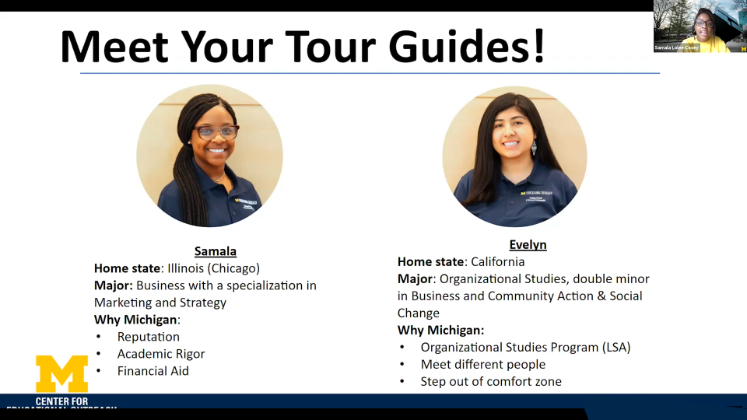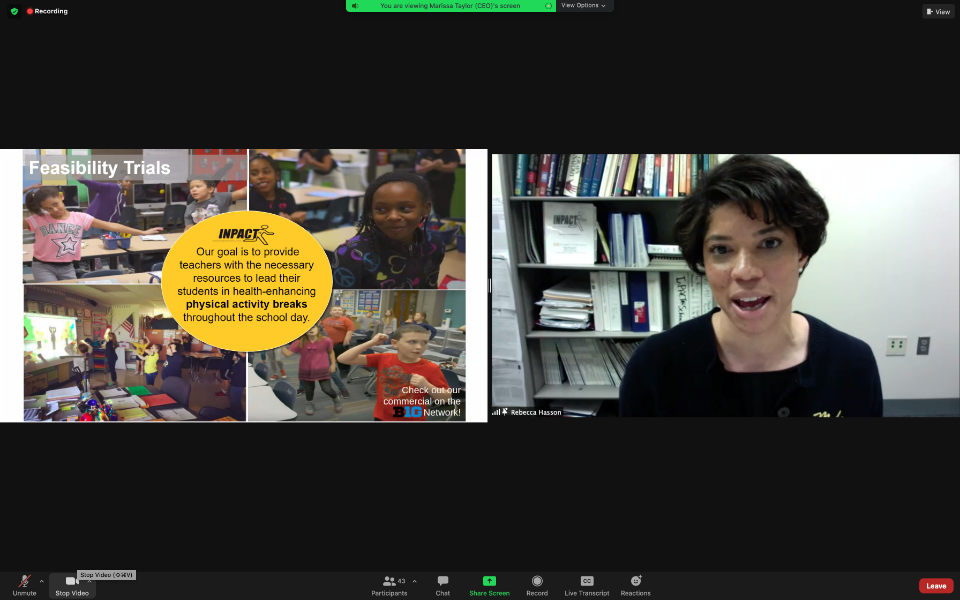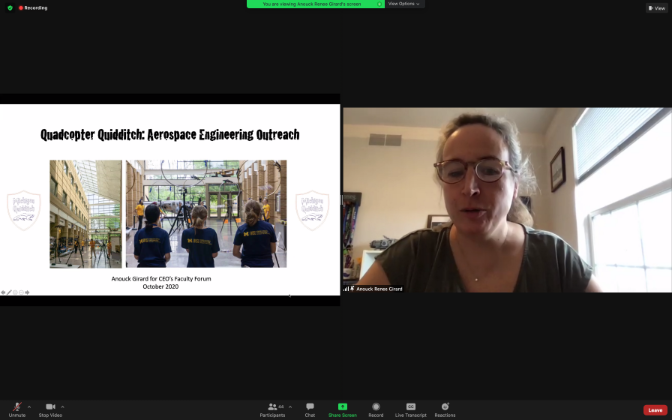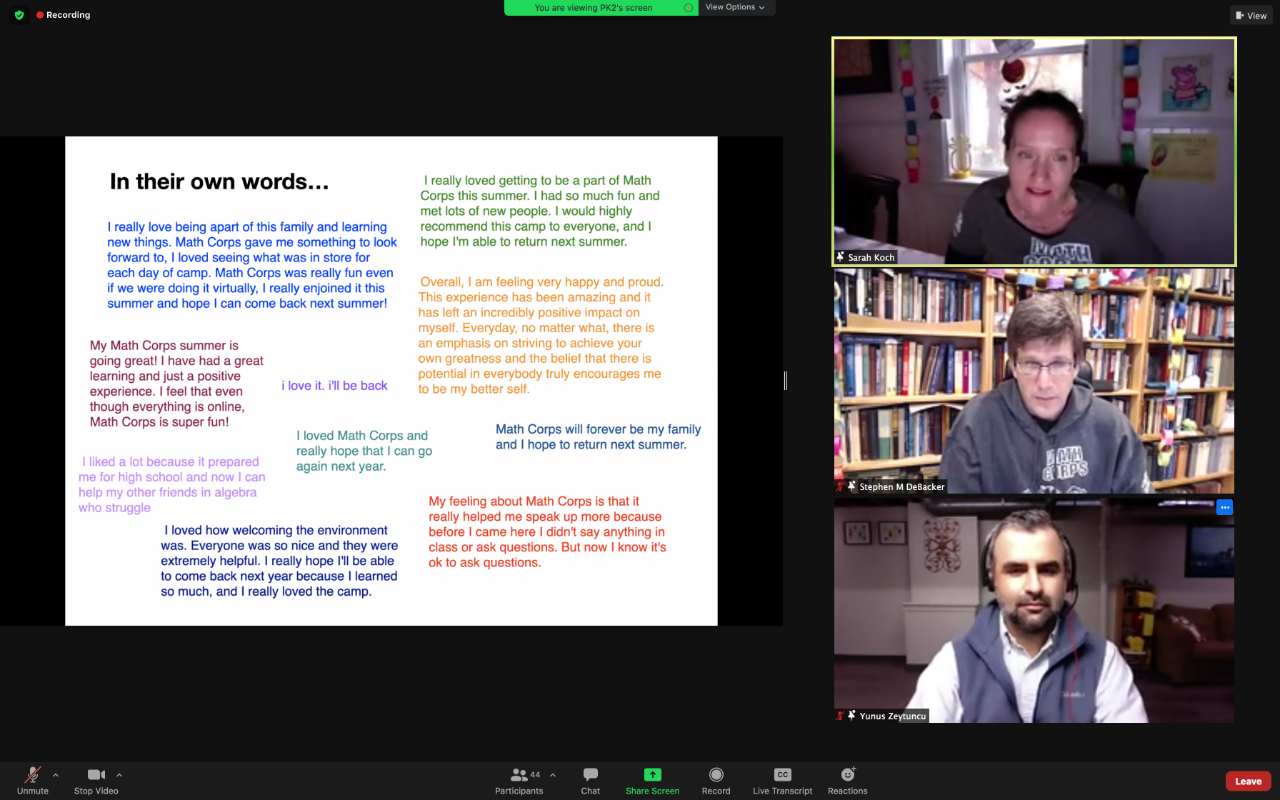This is the first in a series of articles that will highlight virtual outreach programs that develop the next generation of Leaders and Best at U-M, as well as opportunities for the Michigan IT community to get involved.
For many students, U-M’s summer and special programs are possibly among the few moments in their K-12 lives to experience college. Attending a summer or special program could mean the difference between a student deciding college is, or isn’t, for them. The programs help ease fears that college is unattainable, and that college is possible. The loss of that opportunity would have a big impact on the lives and futures of young people across the state.
So as many traditional on-campus summer programs moved online in response to the pandemic, a collaborative cross-campus team was created in spring 2020 to provide a seamless experience for program providers and participants. It included staff from Information and Technology Services (ITS), Center for Educational Outreach, Children on Campus, and Conference & Events specialists. Together, they focused on creating an effective, efficient, and easy customer experience.
Technology tools enabled this work
ITS worked with campus partners to support the planning and delivery of programs, conferences, or events that moved online. The team created a flexible workflow to help program managers define needs, connecting them with ITS experts on tools such as Canvas, U-M Google, and Zoom at U-M.
Zoom at U-M was used for meetings, Google Chat for connecting online, and shared Google Docs for collaboration. The team also presented on a poster for the Michigan IT Symposium, and shared lessons learned with the University Outreach Council.
In a short amount of time, the ITS team tackled many challenges, including,
- verifying or amending ITS contracts so that tech tools could be used by minors;
- crafting checklists and resource lists for program developers;
- writing documentation to be used among all the support teams to maintain transparency and a high level of customer service;
- developing a best practices guide with links to documentation;
- creating a workflow and a single support request form;
- utilizing TeamDynamix to manage support requests;
- and successfully communicating updates to the pre-college community at U-M through CEO’s University Outreach Council.
To date, the team has served 2,400 participants, 110 programs, and 22 departments. “Without this partnership and working together to navigate the unknown and confusion, many programs would not have been able to run this year, removing the opportunity to engage with countless students,” said Marissa Taylor, program manager for CEO.
Colleen McCormick, ITS customer advocacy manager, also took part in the project. She witnessed firsthand that although the team was small and had formed quickly, they worked well together.
“The team was purpose-driven, with goals of being responsive to requests and providing a cohesive customer experience for program sponsors, planners, and participants. The team thrived on supporting each other with kudos and words of appreciation to ITS, as the value of the services and support provided by our colleagues are recognized as vital for these virtual programs,” said McCormick.
Build job skills, get involved virtually
This pilot program continues to support academic and non-academic programs, conferences, and special events that will be online or hybrid (online and in-person) in summer 2021. Plans are ramping up now for the coming summer with 25 new virtual programs, and the team is looking to add to their roster of expertise.
“This is a perfect opportunity to join in delivering an important experience to youth. I know I learned a lot of new IT skills and many others did as well—but our expertise isn’t technology,” said Taylor. “There is a gap ready for Michigan IT volunteers to fill if they would like to give back to the community. Being on this team and supporting these life-changing programs for students can also be a great way for staff to fulfill professional or unit Diversity, Equity and Inclusion goals.”
She encourages staff to check with their supervisor to understand unit and personal professional DEI goals. An added benefit includes networking and building relationships with other units that often lead to dynamic cross-campus partnerships and new streamlined processes. Supervisors have a valuable role in encouraging and supporting their staff to get involved. They can also set the expectation about whether staff should use professional time, vacation time, or some combination of both to participate.
“Such strong working relationships were built among the team members,” said Taylor. “This is a wonderful opportunity to give back to our community. We are excited about how the programs can benefit from the technical expertise of those who are looking for ways to be a part of programs that equip and inspire students to go to college.”
Please reach out to Marissa Taylor at mnrivas@umich.edu to get involved today!
Thank you to Marissa Taylor and Amanda Hudeck (CEO), and Colleen McCormick (ITS), for their contributions to this story.




